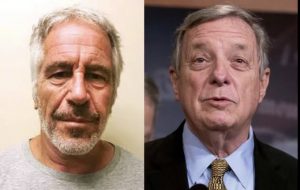The Monsoon Session of the Indian parliament will start from July 19 with all the precautions for COVID-19 in place. Several motions will be discussed and deliberated upon during this session.
However, the Monsoon Session is not the only session of the parliament.
The highest law-making body in the country, the Parliament, has key responsibilities entrusted to its two houses, Lok Sabha and Rajya Sabha. Both the houses keep a check on the functioning of the government; pass the country’s budget; highlight important issues being faced by the people.
Also read: Monsoon Session from July 19 to August 1; unvaccinated MPs to undergo COVID test
It is an institution that works in a structured manner. It comprises the President and the two Houses – the Rajya Sabha (Council of States) and the Lok Sabha (House of the People). The President of India has the power to summon either the House of Parliament or to dissolve the Lok Sabha.
The Parliament has three different sessions – Winter, Budget and Monsoon session. During a session, a House meets almost every day to manage the business.
Budget Session
Convened between February to May every year, the budget session is considered to be a highly crucial session of the Parliament. The Union Budget is usually presented on the last working day of the month of February. The finance minister presents the annual budget and members discuss the various provisions of the budget and matters concerning taxation. Generally split into two periods with a gap of one month between them, the session is the longest. Before the budget session, the President addresses both the Houses.
Monsoon Session
The monsoon session is generally held two months after the budget session from the month of July to September every year. Matters of public interest are discussed during this session. This year, due to the coronavirus pandemic the monsoon session has not been convened yet. It is expected to start from September 14.
Also read: Parliament Monsoon Session begins on July 19: Know what is privilege motion
Winter Session
The winter session of Parliament is held in mid-November to mid-December every year. It is the shortest session of all. It takes up the matters that could not be considered upon earlier and makes up for the absence of legislative business during the second session of the Parliament.
Joint Session of Parliament
In order to break any deadlock between the two Houses, joint sitting of the Lok Sabha and the Rajya Sabha can be called according to a provision in the Indian Constitution. The joint sitting of the Parliament is called by the country’s president.
The Speaker presides over the joint session and in his/her absence, Deputy Speaker of the Lok Sabha can preside over the session.
Also read: Karnataka CM Yediyurappa dismisses resignation rumours, meets BJP chief
When can a Joint Session be called?
*If a bill is passed by one House and passed on to the other
* The bill is rejected by the other House
* The Houses disagree on the amendments made to the bill
* If six months have passed since the passing of the bill by one House and the bill has been received by the other House without it being passed (the President cannot summon a joint sitting if the bill was not passed because of the dissolution of the Lok Sabha).
Also, in calculating the 6 months, days, when House was prorogued or adjourned for more than 4 consecutive days, are not counted.






